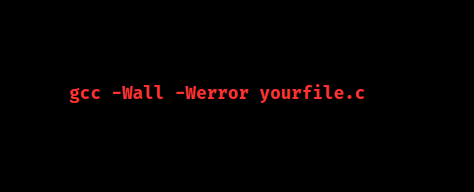In Linux, the message “cc1: all warnings being treated as errors” usually appears during the compilation process using GCC (GNU Compiler Collection), when the compiler is set to treat warnings as errors. In this latest blog, we’ll see the causes & fixes for the issue. As part of our Server Management Service, Bobcares provides answers to all of your questions.
Overview
- Warning “cc1: all warnings being treated as errors” in Linux
- Impacts of the Error
- Causes of the Error
- Fixes of the Error
- How to Prevent the Error?
- Conclusion
Warning “cc1: all warnings being treated as errors” in Linux
When the compiler treats warnings as errors, the error message “cc1: all warnings being treated as errors” will appear throughout the compilation process using GCC (GNU Compiler Collection). The -Werror flag regulates this, which asks the compiler to halt compilation if any warnings are encountered, thereby converting them to errors.
The error message itself has no special syntax, but it is triggered by the usage of the -Werror flag. Here is an example of how this flag could be used in a compilation command.

In this case, -Wall enables all warnings, while -Werror transforms them into errors, causing the compilation to cease if any warnings are discovered.
Impacts of the Error
1. Warnings are considered as errors, causing the compilation process to fail.
2. While treating warnings as errors can assist maintain high code quality by ensuring that all warnings are addressed, it can potentially slow down the compilation process if not handled correctly.
Causes of the Error
1. The most typical cause is the inclusion of the -Werror flag in the compilation command or Makefile. This setting also instructs the compiler to treat all warnings as errors.
2. The code being built may have warnings that must be handled. These could be related to deprecated functions, type mismatches, or possible issues detected by the compiler.
3. In some cases, the build environment or compiler options may automatically include -Werror, particularly in projects that value code quality and stability.
Fixes of the Error
1. Remove -Werror: Edit the Makefile or compilation command to remove the -Werror flag, allowing compilation even with warnings.
2. Suppress Specific Warnings: Use -Wno-error= to ignore specific warnings while keeping -Werror enabled. Example: make CFLAGS=”-Wno-error=format-truncation”.
3. Fix the Warnings: Review and fix the code causing warnings to ensure a clean compilation without needing to disable -Werror.
4. Conditional Compilation: Modify the Makefile in order to include -Werror only in certain environments or build configurations.
5. Use Compiler Options: Pass options directly when building, like make CFLAGS=”-Wno-error”, to override -Werror for a specific build.
[Searching solution for a different question? We’re happy to help.]
How to Prevent the Error?
In order to avoid warnings being considered as errors while compiling code in the future, do the following steps:
1. Firstly, avoid using the -Werror flag: Check that the -Werror flag is not present in the compiler settings or Makefile. This flag causes warnings to be handled as errors.
2. Add specific warning controls: If we need to treat certain warnings as errors, use the -Werror= switch with a specifier rather than using it for all warnings. For example, -Werror=switch treats only warnings handled by -Wswitch as errors.
3. Modify the Makefiles: If the Makefile has the -Werror flag, edit it to remove it. This prevents warnings from being interpreted as errors during the compilation process.
4. Apply Diagnostic Pragmas: Pragmas can be used to regulate diagnostics on a file or section level. This enables us to conceal warnings in select sections of the code without disrupting the overall compilation process.
5. Warnings should be reviewed and addressed: Review as well as respond to code warnings on a regular basis. This is the greatest approach for avoiding warnings in the first place, preventing them from being handled as errors.
Conclusion
The error “cc1: all warnings being treated as errors” occurs when GCC treats all warnings as errors due to the -Werror flag. This can happen because of specific project settings, compiler configurations, as well as actual warnings in the code. In order to resolve this, we can remove the -Werror flag, suppress specific warnings, fix the code causing warnings, or use conditional compilation settings to control when -Werror is applied. Each approach offers different levels of flexibility and code quality assurance.




0 Comments